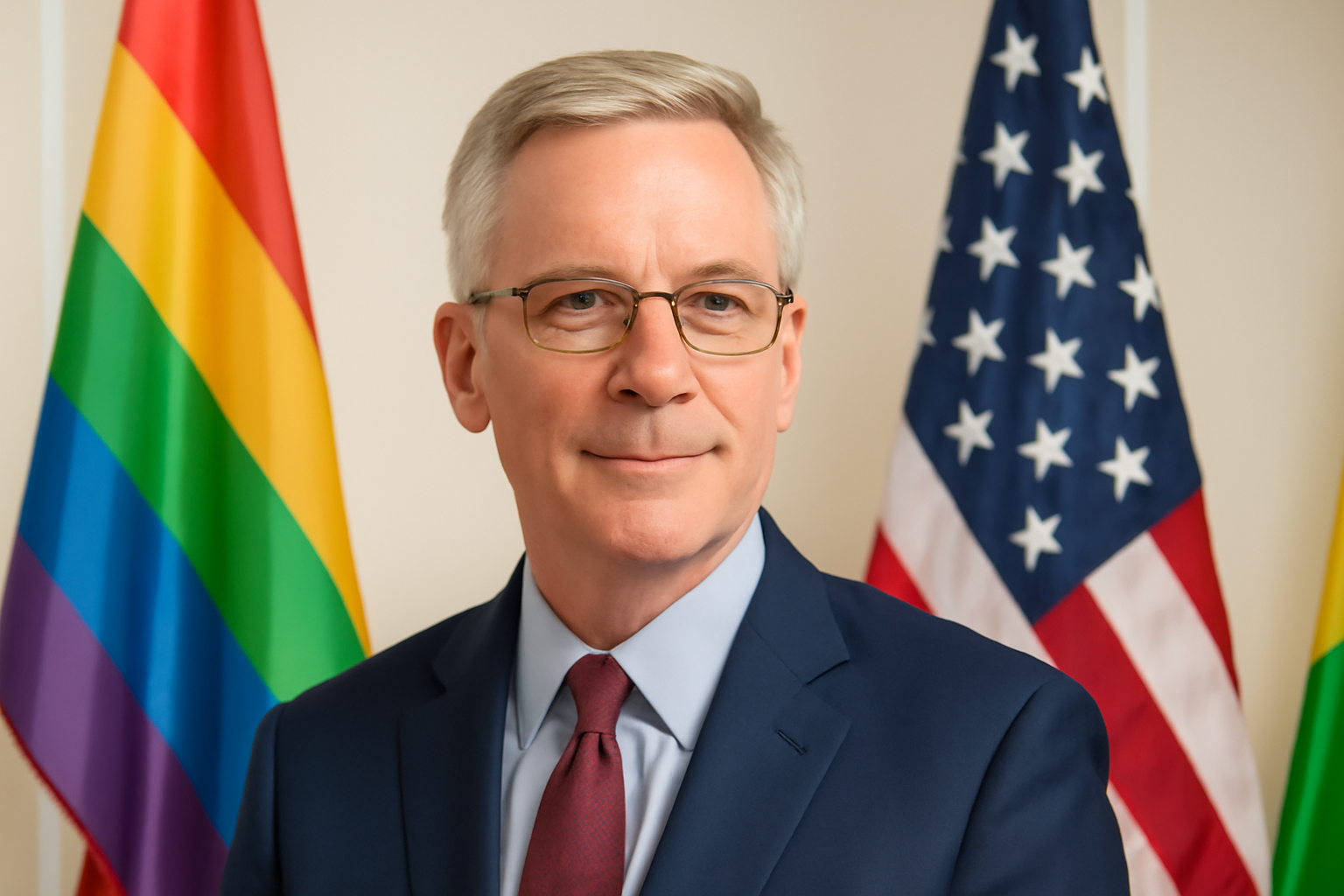
Reflections on International Relations and Diplomatic Responsibilities
In the complex world of international relations, the treatment of leaders and allies can have far-reaching implications. It is crucial for nations, particularly those with significant global influence like the United States, to engage with the international community in a manner that is both respectful and strategic. Reflecting on recent diplomatic interactions, there is a noteworthy discourse led by Ambassador Rufus Gifford, who has been vocal about the responsibilities that come with being a global leader. His insights provide a compelling case for why nations should be deeply conscientious about how they interact with allies and adversaries alike.
Ambassador Rufus Gifford, with a wealth of experience in diplomatic circles, has emphasized the importance of maintaining strong and respectful relationships with allies. He argues that the health of these relationships is indicative of a country's commitment to shared values and mutual understanding. Gifford's recent remarks have highlighted concerns about how certain political figures have approached international diplomacy, specifically referencing interactions with Ukrainian President Volodymyr Zelenskyy, and by extension, other global allies.
Gifford points out that diplomacy is not merely about negotiation and policy. It also involves a deep respect for cultural differences and historical contexts. When leaders engage in diplomatic discourse, they carry the weight of representing their nation's values and ideals on the world stage. Missteps or displays of disrespect can ripple through the international community, affecting not only bilateral relations but also the broader geopolitical landscape.
In today's interconnected world, where actions and words are instantly broadcast across digital platforms, the stakes are higher than ever. Every interaction is scrutinized, and the global audience can quickly form opinions that influence international perceptions. This is why, according to Gifford, it is vital for leaders to approach diplomacy with a sense of humility and an earnest willingness to listen and collaborate.
Ambassador Gifford's critique is particularly relevant in the context of the ongoing geopolitical challenges in Eastern Europe. The conflict involving Ukraine has drawn international attention and has demanded a robust response from the global community. The manner in which leaders engage with Ukraine's leadership, such as President Zelenskyy, sends powerful signals about their stance on democracy, sovereignty, and rule of law.
Gifford underscores that strong alliances are built on trust and mutual respect. When leaders fail to uphold these principles, they risk undermining the very foundations of these alliances. This can lead to a weakening of global influence and a potential shift in international dynamics that could have unforeseen consequences.
Moreover, Gifford advocates for a more inclusive approach to international relations, one that recognizes the diverse backgrounds and experiences of global leaders. This inclusivity fosters an environment where dialogue can flourish, and solutions to complex issues can be collaboratively developed. It is through such a lens that international relations should be navigated, ensuring that all parties feel valued and heard.
In conclusion, Ambassador Rufus Gifford’s reflections serve as a reminder of the profound responsibilities that come with diplomatic engagement. His call for a more respectful and inclusive approach to international relations resonates with the values of equality and understanding. It is a timely reminder that diplomacy is not just about power and politics; it is about building a world where cooperation and respect lead the way to peace and prosperity.
As the global community continues to face complex challenges, these insights from seasoned diplomats like Gifford are invaluable. They encourage a thoughtful reevaluation of how nations interact with one another, aiming to strengthen ties and promote a more harmonious international community.
Related Posts
Ryan Russell: Living Authentically as a Bisexual NFL Player
Ryan Russell: embracing authenticity as a bisexual NFL player September 11, 2018, stands out as a deeply personal day in Ryan Russell's life. Not because he achieved something on a football field, but because he lost his dear friend and college roommate, Joe Gilliam, who succumbed after a brave battle with cancer. Throughout Joe's fight, Ryan was there, supporting him every step, even dedicating [...]
Jacob Elordi Shines in a Queer Love Story "On Swift Horses"
Jacob Elordi's latest film, "On Swift Horses," might leave you guessing at first, but at heart, it's a deeply moving queer love story. It's an adaptation from Shannon Pufahl's novel, brought vividly alive by director Daniel Minahan and writer Bryce Kass, weaving together themes that explore love, identity, and self-discovery on many levels. Love unfolds in 1950s America Step back in time with "O [...]
Creating New Models for LGBTQ+ Parenting: Embracing Community and Visibility
Empowering parenthood: envisioning a truly inclusive future "I'm all in when it comes down helping people realize their dreams about becoming parents," says Marea Goodman. She's not just a midwife; she's an author and founder who built Pregnant Together, an inclusive community with a heart. Goodman passionately believes that everyone, no matter who they are, deserves a shot at parenting. With tw [...]